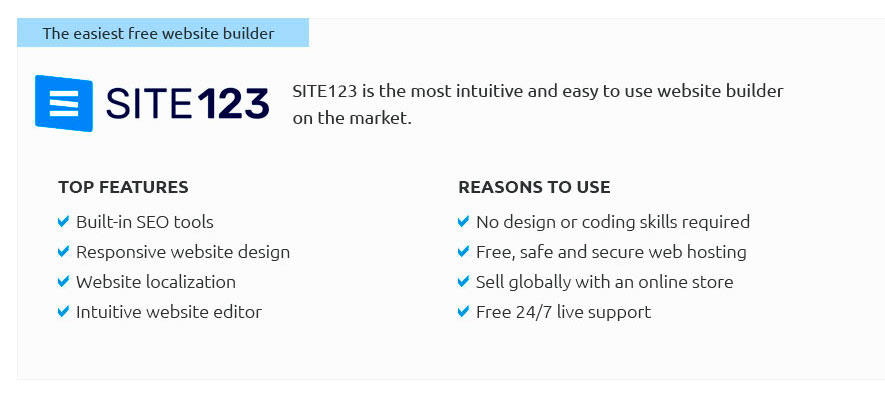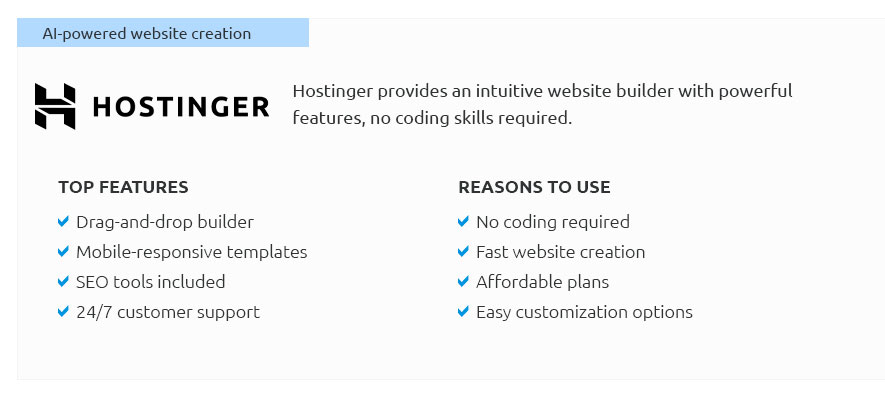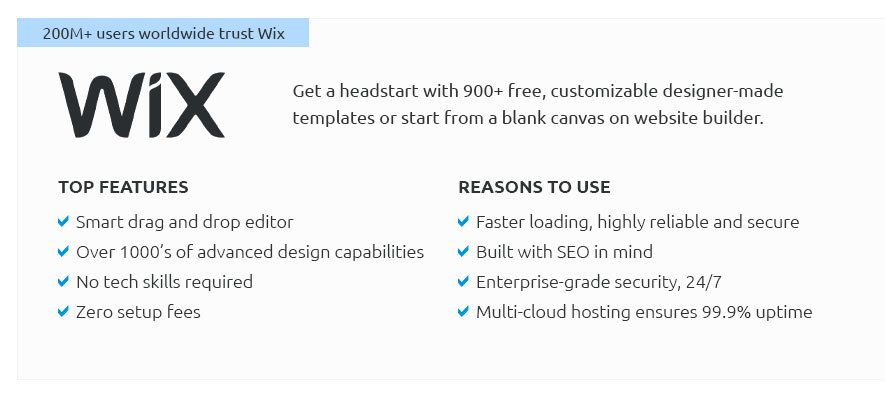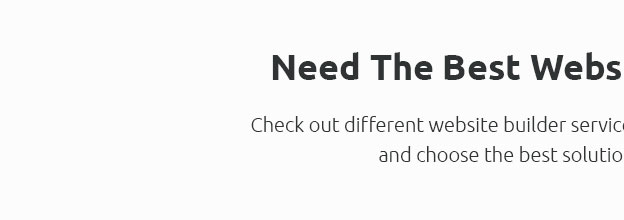 |
 |
 |
 |
|
 |
 |
 |
|
 |
|
 |
 |
|
 |
|
 |
|
 |
 |
Top 10 Best Website Builders for Creating Stunning Sites in 2023In today's digital age, choosing the right website builder can make all the difference. Here, we explore the top 10 best website builders available, evaluating their features, pros, and cons to help you make an informed decision. 1. WixWix is renowned for its flexibility and ease of use, making it a favorite for many beginners and professionals alike.
2. SquarespaceKnown for its stunning design templates, Squarespace is ideal for creatives and businesses looking for aesthetic appeal.
3. ShopifyShopify is the go-to choice for creating e-commerce websites, offering robust tools for online selling.
4. WeeblyWeebly offers a straightforward platform that's great for small businesses and personal sites.
5. WordPress.comFor bloggers and those needing extensive content management, WordPress.com remains a powerful contender.
6. WebflowWebflow is designed for designers, offering advanced features for creating custom websites.
7. ZyroZyro combines affordability with a range of essential features, making it perfect for startups.
8. DudaDuda offers tools geared towards agencies, focusing on client management and team collaboration.
9. JimdoJimdo is ideal for those who need a quick, AI-assisted website setup.
10. GoDaddy Website BuilderGoDaddy offers a simple builder with integrated hosting solutions, perfect for those seeking all-in-one packages.
Choosing the Right BuilderConsider your specific needs, whether it's web making for an online store, a blog, or a portfolio, each builder offers unique strengths. FAQs About Website Builders
Ultimately, selecting the right website builder depends on your goals and technical comfort level. For those unsure where to start, consulting experts on who can create website for me can provide valuable guidance tailored to your needs. https://whoishostingthis.com/best-website-builders/
We chose Bluehost as the best website builder because its website builder works on top of WordPress, making it more versatile and flexible than other solutions ... https://www.neo.space/blog/top-rated-website-builders
GoDaddy is one of the best-known web builders that helps you make intuitive websites. It offers hosting, domains, and design features to drive ... https://www.partnero.com/articles/the-top-10-website-builders-in-2025
Comparison of the Best Website Builders in 2025 ; 1. Ycode. Ycode Website Builder. Ycode ; 2. Framer - Framer ; 3. Webflow. Webflow ; 4. Wix - Wix ; 5. Squarespace.
|